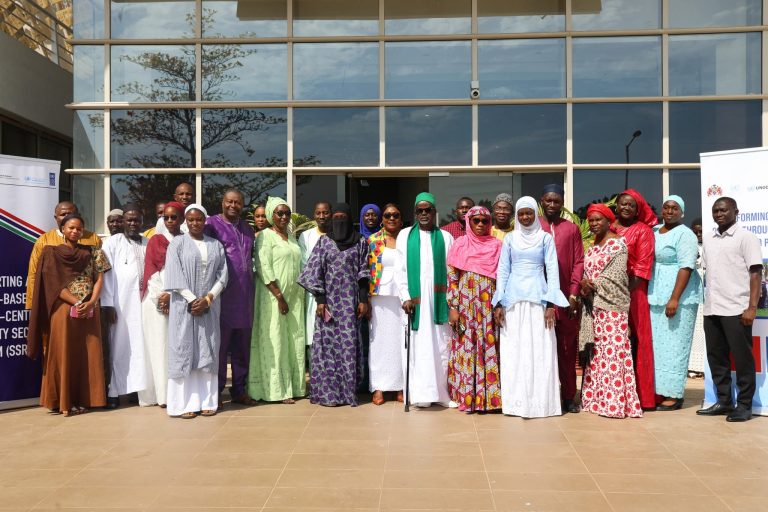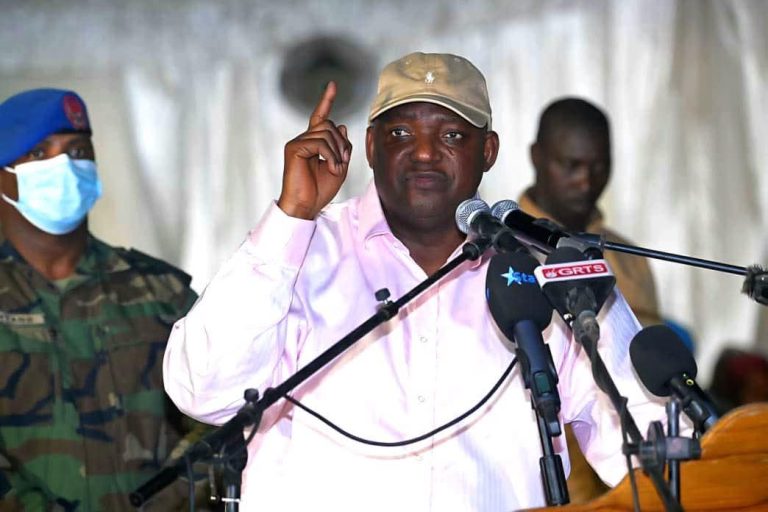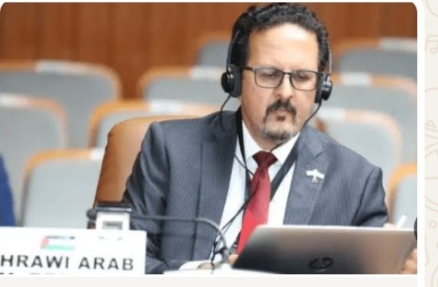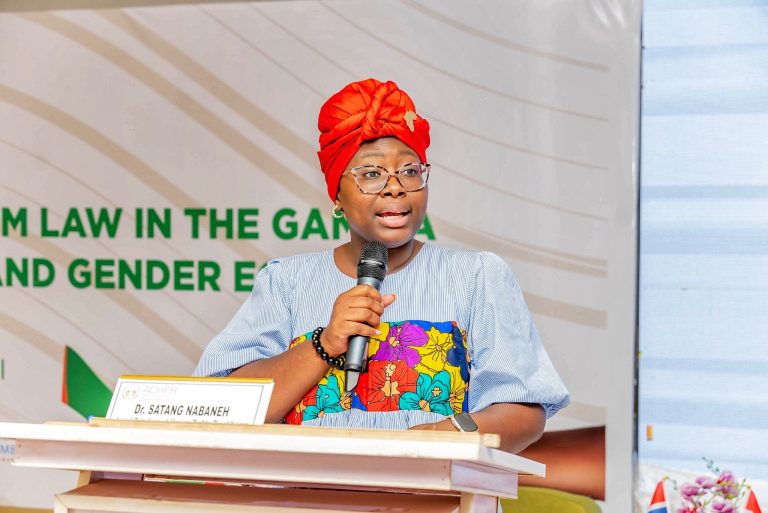
Landing B. Sanneh, chairman of the Mansakonko Area Council and resident of Jarra Soma, appeared before the Local Government Commission of Inquiry to provide insight into the council’s financial and administrative operations from May 2018 to January 2023. The Commission is conducting a full and impartial investigation into local government councils’ conduct to promote transparency and accountability.
Sanneh, elected in May 2018 and re-elected in May 2023, submitted a written statement dated 10 November 2023, which was tendered and admitted as evidence.
During his testimony, Sanneh acknowledged that the council took several loans from banks throughout his tenure. He explained that smaller loans and overdrafts were often taken by the CEO and finance director without his prior knowledge, particularly overdrafts for salary payments. Larger loans would be brought to his attention and sometimes to the finance committee.
Lead Counsel Patrick Gomez pointed out that such actions were improper as they committed the council to interest payments and other obligations without proper authorisation. Sanneh agreed with this observation.
He affirmed his knowledge of key governing instruments, including the Financial Manual for Local Government Councils and the Local Government Finance and Audit Act. However, he noted that from 2018 to 2023, no official document or council resolution defined expenditure approval thresholds as required by the financial manual. The manual mandates that certain approvals should be tiered between the CEO, chairman, and council, but this was only applied “discretionally” during that period. Sanneh said, “From 2024, we have documented the thresholds, and now it is being applied as required by law. It is no more discretionarily applied.”
Sanneh explained that weekly senior staff meetings were held, with additional meetings convened as needed. While he was aware of some withdrawals, he said he was not informed about all transactions but was kept updated on activity implementation.
He also discussed the council’s review of audit reports, sometimes discussing findings in senior staff meetings or specific audit query sessions. Counsel Gomez asked for meeting minutes related to these discussions.
The council operates four bank accounts across Trust Bank, Guaranty Trust Bank, Reliance Financial Service, and Salam Microfinance. Sanneh stated that the council maintains an updated fixed asset register.
On budgeting, Sanneh described a consultative process involving various departments submitting budgets to the CEO and chairman before presentation to the general council. Ward councillors, as chairpersons of ward development committees, also submit plans, though inputs from these committees are not formally solicited in the budgeting process.
Sanneh addressed revenue collection, stating the council conducts assessments in communities to identify taxable and non-taxable properties and shops. Counsel Gomez highlighted previous testimony that the same individuals conducted both assessments and collections, raising conflict-of-interest concerns. Sanneh said he instructed swapping collectors and believed the directive was implemented, though Gomez indicated this was not followed up.
Regarding internal audits, Sanneh confirmed the unit is functional and reported improvements since 2024, with increased compliance with audit recommendations.
Sanneh admitted the council lacks Standing Orders but said resources have recently been secured to hire someone for their preparation. When Chairperson Jainaba Bah asked why the council had not sought assistance from the Ministry of Justice for drafting Standing Orders, Sanneh said, “We could have done that, but we did not do that. It is a lapse on our side.”
On financial management, the council has frequently taken overdrafts for salary payments and office expenses, contrary to the financial manual. Sanneh acknowledged awareness of some of these and agreed with Gomez that most payments bypassed the internal audit’s pre-payment approval. He attributed this to “work culture” but noted it is improving.
The council received COVID-19 relief funds from the Israeli Embassy, held in a special account which was not audited.
Sanneh described council auctions of vehicles in which some council staff, including former finance director Bai Gibbi Sillah, purchased vehicles at prices as low as D100,000. He said the contracts committee was involved but acknowledged the auction process and outcomes were not properly documented or reported.
He was unaware of all vehicle buyers and the amounts generated until after the auctions. Counsel Gomez noted no assessment or approval from the Gambia Public Procurement Authority (GPPA) and criticised the lack of justification for selling vehicles. Gomez said, “The person selling is the person buying,” indicating conflicts of interest.
Sanneh said the council approved the auction idea but was not involved in the details. Gomez urged disciplinary action for selling vehicles below value to insiders; Sanneh agreed it was an oversight but said the council focused on recovering auction debts rather than punitive measures.
The witness was asked about alleged private receipts issued by Bai Gibbi Sallah obtained from a private businessman in Brusubi, including a receipt generating D1.8 million and 13 missing receipt books. Sanneh said he was not aware of these issues.
On assets, Sanneh reported the council purchased two plots of land in Soma, a fast-developing business hub, each costing over D100,000.
Sanneh candidly admitted “systemic issues” in compliance and governance. He explained that at his election in 2018, only one council staff member held an HND qualification, while many had only high school education or no certificates. Today, the council has three with master’s degrees, four with first degrees, and others with various certificates.
He said reform takes time, and impact was only becoming evident in 2024 as the council matured. “Now there is pre-auditing and post auditing, monthly accounts reconciliation, and monthly engagement with the finance unit,” he said. He attributed past problems partly to work culture but expressed optimism about recent improvements.




